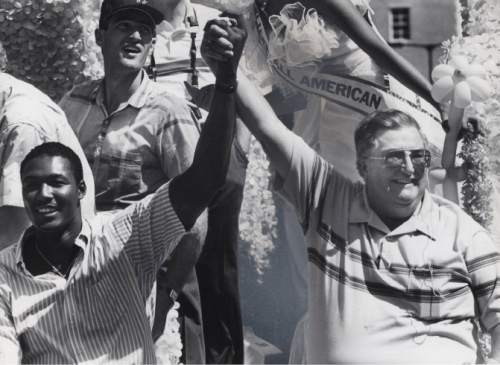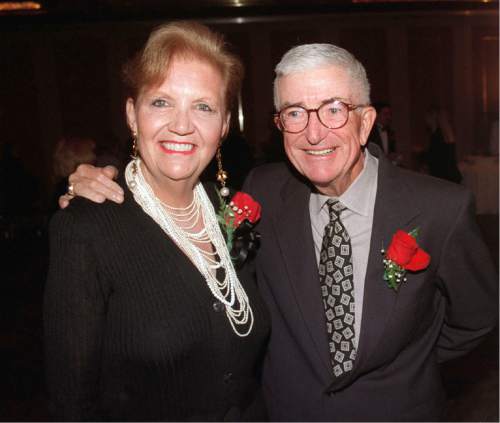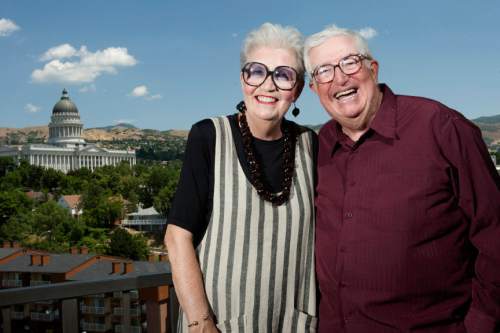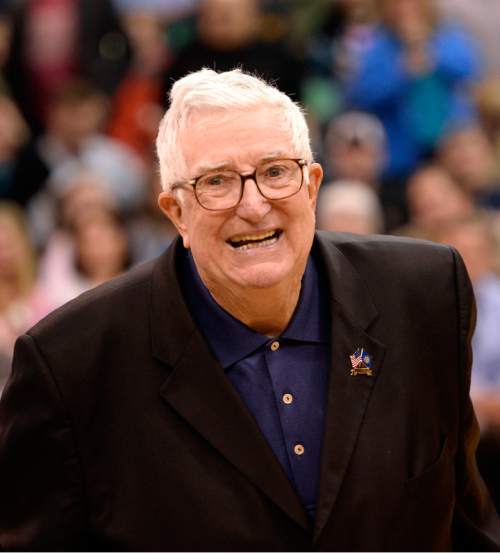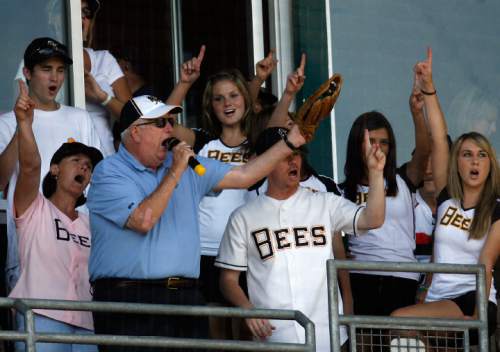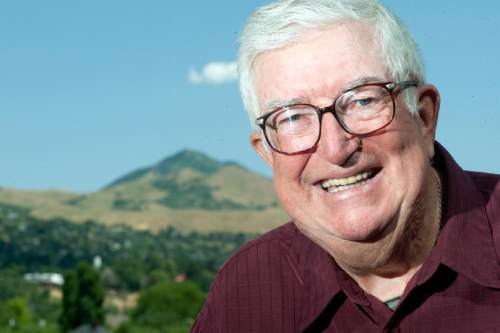This is an archived article that was published on sltrib.com in 2016, and information in the article may be outdated. It is provided only for personal research purposes and may not be reprinted.
Whenever he talks about being honored by the BYU Management Society, Frank Layden will joke about the "Distinguished" label of the award.
The "Utahn" part, he'll take seriously.
No greater endorsement of Utah could exist than having Layden and his wife, Barbara, immerse themselves in this state for nearly 40 years. The native New Yorkers could have gone anywhere after Layden's Jazz coaching career ended, and they've stayed in Salt Lake City, supporting all kinds of charitable and civic causes and just caring about other Utahns.
The Laydens live in Utah; they don't merely reside here. That's why the professional networking organization's 23rd annual Distinguished Utahn scholarship event Tuesday at Vivint Smart Home Arena made a worthy pick of Layden, honoring him and the Jazz. This guy became distinguished around here long before now, but there's some symbolism in having him recognized again at age 84, considering how his impact in Jazz history took hold in 1984.
The Jazz wouldn't be here without the late Larry H. Miller, who was just getting started in owning auto dealerships when he bought into the franchise. Yet if you connect the dots, Miller never would have become attached to the team — never would have blurted, "The Jazz can't leave!" — if not for Layden's work.
The Jazz's now having gone four years without making the NBA playoffs is a reminder of how they struggled for the first four years in Utah, before everything came together in 1983-84. Imagine any major league franchise moving to any town and drawing fewer than 8,000 fans for its opening game.
Only when Layden's ability to build and coach a team took effect did the Jazz begin to fill the 12,000-seat Salt Palace, and then the franchise became entrenched here. Layden was named the NBA Coach of the Year and Executive of the Year in 1984. Even so, he deserves more credit than he gets for what he established with the Jazz.
Layden was accurate when he predicted Jerry Sloan would take the Jazz to greater heights as his successor. Yet the Sloan teams that played in the 1997 and '98 NBA Finals were supposed to get there. The all-time overachieving playoff team in Jazz history is the group from Layden's last full season of 1988 that went 47-35 in the regular season, before taking the Los Angeles Lakers of the "Showtime" era to seven games in the Western Conference semifinals.
The series with the Lakers captured Utahns' interest to a degree that matched the initial '84 playoff appearance. Layden's teams succeeded in uniting the state behind the Jazz and making people care about them. He has spent the last three decades reciprocating.
He's multidimensional, that's for sure. Layden laughs about going to the Utah Shakespeare Festival in Cedar City or the Utah Festival Opera & Musical Theatre in Logan and having people wonder why he's in town, figuring he must have come for a sporting event.
It is said that every funny person is hiding something. In Layden's case, his intelligence is masked by his humor. In my case, it took both of us getting away from the daily interaction of an NBA coach and newspaper beat writer for me to recognize Layden's level of insight. He sometimes seemed impulsive, almost irrational, in those days — and that might be true, actually. Not everything he did was shrewd or calculated.
Yet as the years have gone by, I've come to understand just how smart this guy is, and how much logical, practical counsel he can offer.
The best part about the BYU Management Society's recognizing Layden is reconnecting him to the Jazz. He'll always have some bitterness about the franchise's overlooking his son, Scott (now the Minnesota Timberwolves' general manager) in hiring Dennis Lindsey in 2012, and that's understandable. But the retired jersey No. 1 that hangs in the Vivint rafters in Layden's honor symbolizes a relationship that needs to remain intact.
Frank Layden should view himself as a Jazzman for life. More important, though, is how he considers himself a Utahn, to the benefit of the rest of us.
Twitter: @tribkurt


